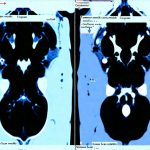It’s frustratingly common: you meticulously follow a ‘healthy diet’, filled with nutrient-rich foods, yet still experience symptoms suggestive of deficiencies – fatigue, weakened immunity, brittle nails, or even more serious concerns. You might wonder if something is wrong with your body’s ability to absorb nutrients, or perhaps the dietary recommendations themselves are flawed. But increasingly, science points to a hidden factor impacting nutritional status: the complex ecosystem residing within our digestive tracts, known as the gut microbiome. This often-overlooked community of trillions of microorganisms – bacteria, fungi, viruses, and archaea – doesn’t just passively receive food; it actively participates in nutrient processing, absorption, and utilization, significantly influencing how well we benefit from even the most carefully planned diets.
The traditional focus on simply consuming enough vitamins and minerals overlooks a crucial piece of the puzzle: whether our bodies can actually access those nutrients. A thriving gut microbiome is essential for unlocking the nutritional potential of food, converting complex compounds into usable forms, synthesizing vital vitamins, and maintaining a healthy intestinal barrier that allows for optimal absorption. Disruptions to this delicate ecosystem – caused by factors like antibiotics, stress, poor diet choices (even seemingly ‘healthy’ ones), or environmental toxins – can impair these functions, leading to nutritional deficiencies even when dietary intake appears adequate. Understanding the intricate relationship between our gut microbiome and nutrient status is therefore paramount for achieving true wellness. If you’re looking to learn more about your gut health, consider gut test schedule.
The Gut Microbiome & Nutrient Bioavailability
The concept of bioavailability – how much of a consumed nutrient actually reaches systemic circulation and can be used by the body – is central to understanding this phenomenon. It’s not enough to eat nutrients; they must be broken down, absorbed across the intestinal wall, and transported where needed. The gut microbiome plays an astonishing role in each of these steps. For instance, certain bacteria are responsible for breaking down complex carbohydrates that our bodies cannot digest on their own, releasing valuable short-chain fatty acids (SCFAs) like butyrate, propionate, and acetate. These SCFAs aren’t just energy sources; they nourish the gut lining, reduce inflammation, and even influence immune function. Without a diverse microbiome capable of this fermentation process, we miss out on these critical benefits – and the nutrients locked within those carbohydrates remain inaccessible.
Furthermore, some nutrients require microbial conversion to become usable. Vitamin K is largely synthesized by bacteria in the gut, while folate and biotin are also partially produced this way. Even seemingly straightforward vitamins like vitamin D benefit from microbiome activity; certain bacterial species can activate vitamin D, enhancing its absorption and utilization. Conversely, an imbalance of gut microbes – known as dysbiosis – can lead to decreased production of these essential nutrients, or even the conversion of beneficial compounds into harmful metabolites. This highlights a fundamental truth: our nutritional status isn’t solely determined by what we eat, but also by the capabilities of the microbial community within us. You may find it helpful to signs for a reset if you are experiencing some of these issues.
Beyond direct nutrient synthesis and breakdown, the microbiome impacts intestinal permeability – often referred to as ‘leaky gut’. A healthy gut barrier selectively allows nutrients to pass into circulation while blocking harmful substances. Dysbiosis can compromise this barrier, increasing permeability and leading to inflammation. This inflammatory response further hinders nutrient absorption, exacerbating deficiencies and potentially triggering autoimmune reactions. It’s a vicious cycle where microbial imbalance leads to impaired absorption, which in turn weakens the gut barrier and perpetuates dysbiosis.
Factors Disrupting Gut Microbiome Balance
Several modern lifestyle factors contribute significantly to disruptions in the gut microbiome. – Antibiotics, while life-saving when necessary, indiscriminately kill both harmful and beneficial bacteria, often leading to long-term imbalances. – A diet high in processed foods, sugar, and unhealthy fats can promote the growth of undesirable microbes while starving beneficial ones. – Chronic stress elevates cortisol levels, which negatively impact gut microbial diversity and function. – Environmental toxins, such as pesticides and heavy metals, can also disrupt the microbiome’s delicate balance.
The rise of Cesarean sections and decreased exposure to diverse environments (like outdoor play in nature) are also implicated in altered microbiome development early in life. These factors influence the initial colonization of the gut, shaping its composition for years to come. This is why children born via C-section or raised in overly sterile environments may be more prone to allergies, autoimmune diseases, and nutritional deficiencies later in life. Understanding these influences allows us to make informed choices to support a healthier microbiome. If you’ve recently been feeling unwell after eating, learning about gut reset diet can be helpful.
Strategies for Microbiome Support & Improved Nutrient Absorption
Restoring and maintaining a healthy gut microbiome is achievable through targeted strategies. 1. Dietary Diversity: Emphasize a wide variety of plant-based foods, including fruits, vegetables, legumes, and whole grains, as they provide diverse fibers that feed different microbial species. 2. Fermented Foods: Incorporate fermented foods like yogurt (with live cultures), kefir, sauerkraut, kimchi, and kombucha into your diet to introduce beneficial bacteria. 3. Prebiotic-Rich Foods: Prebiotics are non-digestible fibers that selectively nourish beneficial gut microbes. Good sources include onions, garlic, leeks, asparagus, bananas, and oats.
- Limit Antibiotic Use: Only use antibiotics when absolutely necessary, and discuss potential microbiome support strategies with your healthcare provider afterward. 5. Stress Management: Implement stress-reducing techniques like meditation, yoga, or deep breathing exercises to minimize cortisol’s negative impact on the gut. 6. Consider Probiotic Supplementation (with caution): While probiotics can be helpful for some individuals, it’s crucial to choose a high-quality product and consult with a healthcare professional to determine if supplementation is appropriate for your specific needs. Not all probiotic strains are created equal, and what works for one person may not work for another. You might consider how to transition to a diet that supports your microbiome.
Addressing Specific Nutrient Deficiencies Through Microbiome Modulation
Certain nutrient deficiencies are particularly linked to gut microbiome imbalances. For example, iron deficiency anemia can be exacerbated by dysbiosis that reduces the absorption of non-heme iron (found in plant-based foods). Similarly, vitamin B12 deficiency is common among individuals with compromised gut health, as bacteria play a role in its absorption and metabolism. Even deficiencies in essential fatty acids like omega-3s can be influenced by microbial activity; certain bacteria are involved in converting alpha-linolenic acid (ALA) into EPA and DHA – the more biologically active forms of omega-3s.
Addressing these deficiencies requires a holistic approach that combines dietary adjustments with microbiome support. For instance, someone struggling with iron deficiency might benefit from increasing their intake of vitamin C-rich foods (which enhance non-heme iron absorption), alongside strategies to improve gut health and optimize iron uptake. This personalized approach recognizes that nutritional needs aren’t static; they are dynamically influenced by the ever-changing ecosystem within our guts. Ultimately, focusing on fostering a thriving microbiome is not just about preventing deficiencies – it’s about maximizing the nutritional benefit of every bite we take, leading to enhanced health and vitality. If you find yourself overeating occasionally, knowing how to reset can be beneficial for your gut health. Moreover, if motion sickness is a frequent issue, understanding how your gut influences symptoms may offer new insights. Finally, remember that you can also rebuild diversity within your gut microbiome with the right strategies.


















